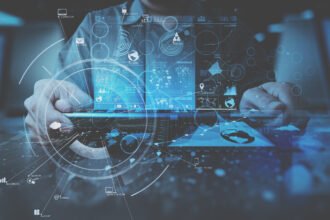Sleep is a very necessary part of our lives. Sleep is also becoming more elusive than ever. An estimated 70 million people suffer from chronic sleep disorders. Many experts attribute the rising rates of insomnia to our addiction to technology. According to some healthcare providers, digital technology has become the underlying cause of insomnia and we are worse off because of it. However, there are actually a number of reasons that big data is the key to improved sleep.
The ultimate question is whether the positive effects of big data on our sleeping habits outweigh the drawbacks. This is a question that will need to be discussed over time. However, it seems that big data will prove to be a net positive for our sleeping habits, provided we understand the health implications and know how to change our habits accordingly.
Big data has provided better research capabilities on our sleeping patterns
Big data is giving us new insights into our health every year. One of the ways that it is proving to be especially helpful is by facilitating research into sleep patterns to detect correlations between various factors that can cause insomnia.
Fullpower is one of the companies that has conducted extensive research on sleep patterns, which would not have been possible without major advances in big data. This company has provided the technology behind countless wearable devices that help track sleep activity. According to Digitalist Magazine, this company has logged over 250 million nights of sleep in its database. This research is proving to be invaluable in improving sleep patterns.
Pharmaceutical companies are also using big data to create better sleep medications. A study from six leading neurology experts at the Division of Sleep Medicine at Massachusetts General Hospital was conducted on the use of big data analytics in phenotyping for sleeping medicine. They have shown that big data is incredibly helpful, although there are still some risks associated with being overly depended on it before we fully understand its limitations.
Big data helps improve the quality of mattresses and other consumer products that directly impact our sleep
In years past, we had little understanding of the role that certain products we depend on every day affect our sleep. More recent research is showing that they are more important than we previously thought. Mattresses are among the most important examples.
If you don?t sleep on a good mattress, your ability to sleep well will be seriously compromised. Big data is helping us understand this relationship better. According to GetBestMattress.com, companies that produce mattresses are doing more in-depth sleep studies. They have started using participants that will sleep on the mattress for several nights at a time.
The goal is to track sleep patterns across different mattresses. This will help them make sure that they are only selling mattresses that ensure customers get the best possible night?s sleep.
Other types of furniture and accessories that we use in our everyday lives aren?t as obviously correlated with our sleeping habits as our mattress. However, many of them can still cripple our ability to get a good night?s sleep if they are not properly designed. One example is the types of desks that we use at work. Poorly designed desks can hurt our sleep habits for a couple of reasons:
- They don?t facilitate enough movement. If you are using a desk that is not economically designed well, then you will be too sedentary. You won?t use enough energy throughout the day, which is going to impede your ability to get a good night?s sleep later.
- Products that are not well designed can cause a number of back problems and other health issues. This can lead to discomfort that plagues us for hours or days later.
Big data is playing an important role in the research and development of these products. This will help mitigate the risk of sleep problems in the years to come.
Big Data is the Key to Getting a Better Night?s Sleep
We have thought that technology is the bane of our sleep habits. However, big data advances are proving this conventional wisdom wrong. Big data is making it easier than ever to get a good night?s sleep, because it is showing what steps we need to take to improve sleep hygiene.








